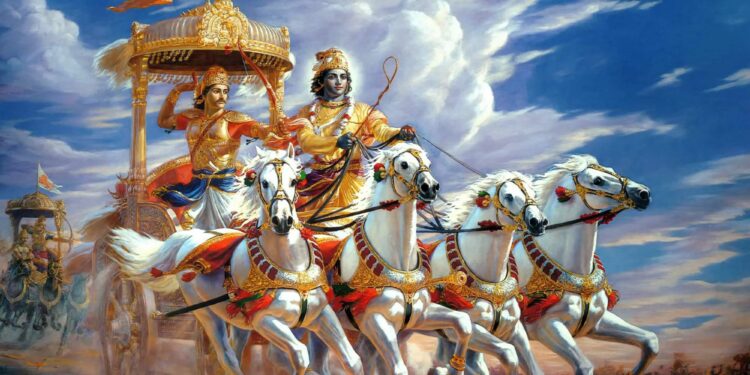TEXT 67
indriyāṇāṁ hi caratāṁ
yan mano ‘nuvidhīyate
tad asya harati prajñāṁ
vāyur nāvam ivāmbhasi
SYNONYMS
indriyāṇām—of the senses; hi—certainly; caratām—while roaming; yat—with which; manaḥ—the mind; anuvidhīyate—becomes constantly engaged; tat—that; asya—his; harati—takes away; prajñām—intelligence; vāyuḥ—wind; nāvam—a boat; iva—like; ambhasi—on the water.
TRANSLATION
As a strong wind sweeps away a boat on the water, even one of the roaming senses on which the mind focuses can carry away a man’s intelligence.
PURPORT
Unless all of the senses are engaged in the service of the Lord, even one of them engaged in sense gratification can deviate the devotee from the path of transcendental advancement. As mentioned in the life of Mahārāja Ambarīṣa, all of the senses must be engaged in Kṛṣṇa consciousness, for that is the correct technique for controlling the mind.
TEXT 68
tasmād yasya mahā-bāho
nigṛhītāni sarvaśaḥ
indriyāṇīndriyārthebhyas
tasya prajñā pratiṣṭhitā
SYNONYMS
tasmāt—therefore; yasya—whose; mahā—bāho—O mighty—armed one; nigṛhītāni—so curbed down; sarvaśaḥ—all around; indriyāṇi—the senses; indriya-arthebhyaḥ—from sense objects; tasya—his; prajñā—intelligence; pratiṣṭhitā—fixed.
TRANSLATION
Therefore, O mighty-armed, one whose senses are restrained from their objects is certainly of steady intelligence.
PURPORT
One can curb the forces of sense gratification only by means of Kṛṣṇa consciousness, or engaging all the senses in the transcendental loving service of the Lord. As enemies are curbed by superior force, the senses can similarly be curbed, not by any human endeavor, but only by keeping them engaged in the service of the Lord. One who has understood this—that only by Kṛṣṇa consciousness is one really established in intelligence and that one should practice this art under the guidance of a bona fide spiritual master—is called sādhaka, or a suitable candidate for liberation.

















